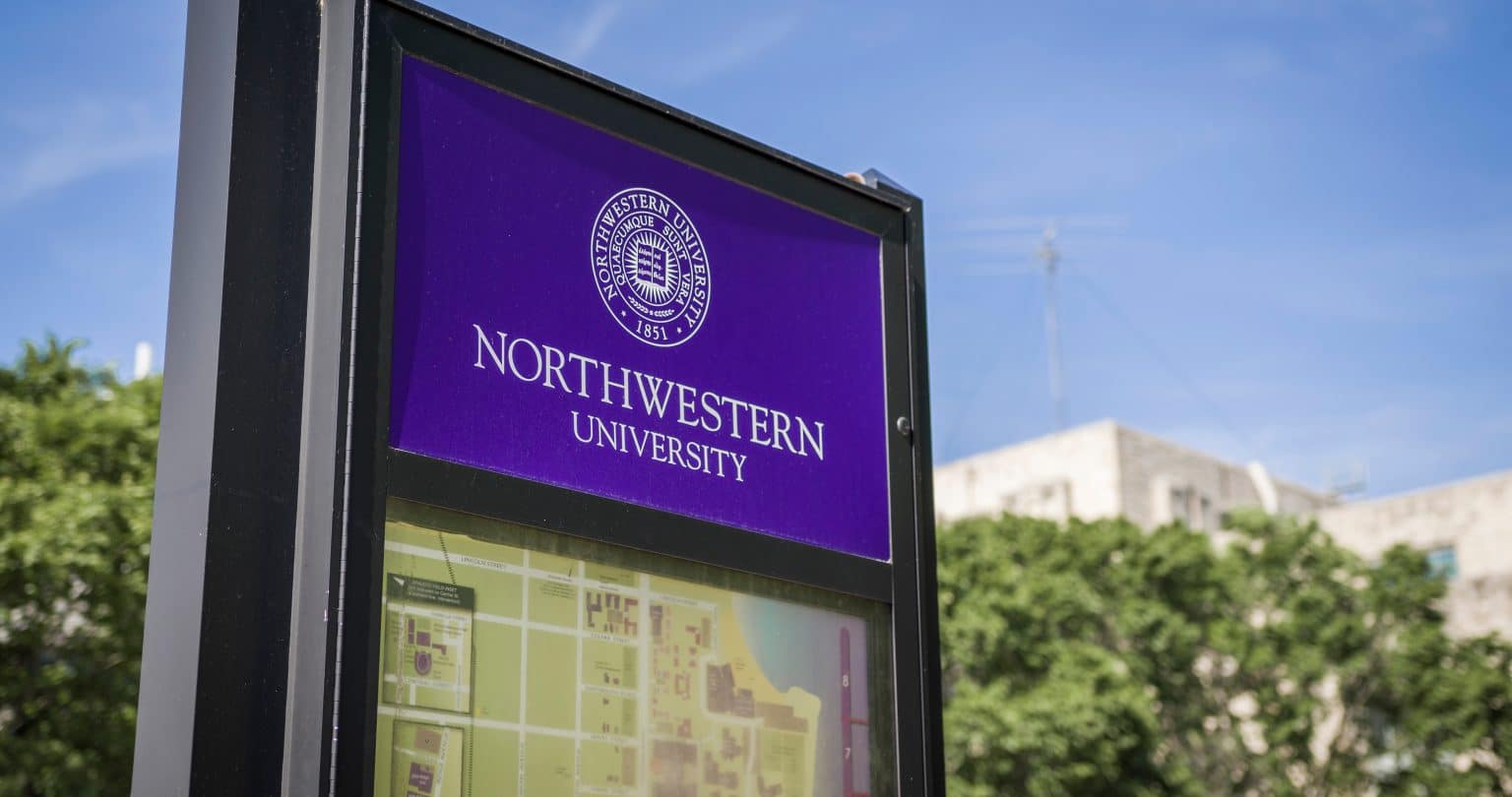Exploring Northwestern’s Endowment: A Comprehensive Overview
Northwestern University, nestled in Evanston, Illinois, is recognized globally for its academic excellence and notable financial resources. One of these resources, perhaps the most critical of its kind, is the university endowment. University endowments are significant to any higher learning institution, and that is undoubtedly the case with Northwestern. They are key to stability and growth in diverse areas, from academics to infrastructure. We’ll attempt to uncover the aspects of Northwestern University’s endowment, history, current status, impact, and future prospects.
Understanding University Endowments
The Role and Importance of Endowments in Higher Education
University endowments are, in essence, an accumulation of assets that universities invest. The return on these investments supports universities’ operations over time. They play varying roles depending on the institution’s size, with larger universities depending more on their endowment income.
These resources are pivotal in maintaining institutions’ financial health during economic challenges. With a firmer financial footing, universities are more equipped to deal with funding gaps and unexpected expenses and to take on ambitious projects that further their academic and research goals.
For example, a university with a substantial endowment may have the financial flexibility to offer more scholarships to students, attracting top talent from around the world. This influx of bright minds enhances the academic environment and fosters a vibrant community of learning.
Furthermore, endowments can provide stability during economic downturns. When faced with a recession or financial crisis, universities heavily reliant on tuition fees may struggle to maintain their programs and services. However, institutions with robust endowments can tap into their investment returns to bridge the funding gap, ensuring that students continue to receive a high-quality education.
How Endowments Support Universities
Endowments support universities primarily by sustaining operations and projects over a long duration. These assets are typically invested in diversified portfolios, including stocks, bonds, and alternative investments such as real estate and private equity.
Only returns, not the primary investment, are used for institutional support, leaving the principal to generate future income. As such, endowments can be viewed as an annuity that provides universities with a steady stream of income to support scholarships, faculty salaries, research, and many other operations.
Endowments also enable universities to invest in cutting-edge research and innovation. With the financial stability provided by endowment funds, institutions can attract renowned researchers and provide them with the necessary resources to push the boundaries of knowledge. This research benefits the university and contributes to scientific advancements and societal progress.
Moreover, endowments can support the expansion of campus infrastructure. Universities often need to renovate existing buildings, construct new facilities, and upgrade technology to meet the evolving needs of students and faculty. Endowment funds can be allocated to these capital projects, ensuring the campus remains modern and conducive to learning.
Additionally, endowments can support community outreach initiatives. Universities with strong ties to their local communities can use endowment funds to establish programs that benefit the surrounding area. This could include funding scholarships for local students, supporting community development projects, or providing resources for cultural events that enrich the region.
Overall, university endowments are vital resources that provide financial stability and support to higher education institutions. They enable universities to weather economic challenges, attract top talent, invest in research and innovation, enhance campus infrastructure, and contribute to the communities they serve. As universities continue to evolve and adapt to the changing landscape of education, endowments will remain crucial in ensuring their long-term success.
The History of Northwestern University’s Endowment
Founding Contributions and Early Growth
Northwestern University’s endowment has a rich history dating back to 1851, when the university was founded. The initial endowments were created through the generous contributions of the founding members. These pioneers recognized the importance of a solid financial foundation for the institution.
As Northwestern University began to establish itself as a leading educational institution, the endowment grew steadily. Alumni, corporations, and other philanthropic entities recognized the value of investing in the university’s future and made significant donations to the endowment. These contributions provided financial stability and demonstrated a strong belief in the university’s mission and vision.
Furthermore, the university’s investment activities played a crucial role in the growth of the endowment. Northwestern University’s investment team carefully managed the funds, making strategic decisions that yielded positive returns. This prudent approach allowed the endowment to flourish and support various academic and research initiatives.
Significant Milestones in Endowment Expansion
Several milestones marked the Northwestern endowment’s expansion, reflecting the university’s commitment to excellence and innovation. One notable milestone occurred during the ’90s when Northwestern University was one of the beneficiaries of the tech boom. Recognizing the potential of emerging technologies, the university made strategic investments that significantly swelled the endowment. These investments provided financial gains and positioned Northwestern University as a forward-thinking institution at the forefront of technological advancements.
More recently, the ‘We Will’ campaign in 2021 was another major milestone in the history of Northwestern University’s endowment. This ambitious fundraising campaign raised $6.1 billion to support strategic university initiatives. The campaign’s success was a testament to the dedication and generosity of Northwestern’s alumni, faculty, staff, and friends. The funds raised through the ‘We Will’ campaign had a transformative impact on the university, expanding scholarships, establishing new research centers, and enhancing academic programs. The endowment, bolstered by these contributions, experienced substantial growth, further solidifying Northwestern University’s position as a premier institution of higher education.
Looking ahead, Northwestern University remains committed to the responsible stewardship of its endowment. The university continues to seek innovative ways to invest and grow the funds, ensuring long-term financial sustainability. The endowment will continue to support the university’s mission of providing exceptional education, fostering groundbreaking research, and positively impacting society.
Current Status of Northwestern University’s Endowment
Overview of Current Endowment Value
Northwestern University’s endowment was valued at $14.4 billion as of the last fiscal year. This makes the University one of the top 10 highest earners in endowment per student, demonstrating its robust financial health.
This extensive asset pool is well diversified across a multitude of asset classes, thus ensuring that the university is well-poised to handle any future economic downturns.
Northwestern University’s endowment is a testament to the institution’s commitment to long-term financial stability. With a value of $14.4 billion, the endowment provides a solid foundation for the university’s operations and growth. This substantial amount of funds allows Northwestern to invest in various initiatives and support its mission of providing a world-class education to its students.
The endowment’s impressive value per student highlights the university’s ability to generate significant returns on its investments. This financial success is a result of prudent management and strategic decision-making, ensuring that Northwestern remains at the forefront of academic excellence.
Furthermore, the diversified nature of the endowment’s asset allocation is a key factor in its resilience. By spreading investments across different asset classes, such as stocks, bonds, real estate, and alternative investments, Northwestern mitigates risk and maximizes potential returns. This prudent approach to diversification safeguards the university’s financial health and enables it to navigate various market conditions.
Allocation and Distribution of Funds
Nearly one-third of Northwestern University’s endowment is allocated to instructional and academic support, demonstrating its commitment to academic excellence. Other key areas of funding include student services and scholarships, maintaining university campuses, and sponsoring numerous research programs.
The calculated fund allocation ensures that the endowment bolsters the university’s growth across many dimensions. Rather than concentrating the funds, the university strategically distributes them to nurture the Northwestern community holistically.
The allocation of a significant portion of the endowment to instructional and academic support underscores Northwestern’s dedication to providing a world-class education. These funds attract and retain top-tier faculty, enhance research capabilities, and develop innovative academic programs. By investing in instructional and academic support, Northwestern ensures that its students receive the highest quality education and have access to cutting-edge resources.
In addition to academic support, Northwestern’s endowment also plays a crucial role in providing financial aid and scholarships to deserving students. By allocating funds to student services, the university aims to make education accessible to a diverse range of talented individuals. Scholarships and grants enable students from various backgrounds to pursue their academic aspirations without the burden of excessive financial constraints.
The endowment’s distribution also extends to the maintenance and improvement of university campuses. These funds are utilized to create state-of-the-art facilities, renovate existing infrastructure, and provide a conducive learning environment for students and faculty alike. By investing in campus development, Northwestern ensures its physical spaces align with its commitment to excellence and innovation.
Furthermore, Northwestern’s endowment supports numerous research programs across various disciplines. These programs foster groundbreaking discoveries, drive innovation, and contribute to the advancement of knowledge. By allocating funds to research initiatives, the university encourages faculty and students to engage in cutting-edge research that addresses complex societal challenges and pushes the boundaries of human understanding.
Ultimately, Northwestern University’s endowment is a testament to its financial strength and commitment to academic excellence. With a well-diversified asset allocation and strategic fund distribution, the endowment plays a vital role in supporting the university’s growth, providing scholarships, enhancing instructional support, maintaining campuses, and fostering groundbreaking research. The endowment serves as a cornerstone of Northwestern’s mission to provide a transformative educational experience and contribute to the betterment of society.
Impact of Northwestern University’s Endowment
Supporting Academic Excellence
The impact of Northwestern University’s endowment is best seen in its unrelenting focus on academic excellence. A considerable portion of funds is invested directly in students and faculties, providing them with scholarships, fellowships, and other support.
These scholarships and fellowships enable students from diverse backgrounds to pursue their educational dreams at Northwestern. By removing financial barriers, the endowment ensures that talented individuals can access a world-class education, regardless of economic circumstances.
Furthermore, the endowment’s support for faculties goes beyond financial aid. It also allows Northwestern to attract and retain the best academics in their fields. With the help of endowment-funded chairs, the university can offer competitive compensation packages and research grants, thus creating an environment that fosters intellectual growth and innovation.
Through these investments, the endowment not only enhances the educational experience for students but also strengthens the university’s reputation as a leading institution for academic excellence.
Facilitating Research and Innovation
Northwestern University’s endowment also plays a significant role in fostering research and innovation. It bolsters Northwestern’s ability to undertake major research initiatives across many disciplines, furthering the boundaries of human knowledge.
The endowment provides researchers with the necessary resources to pursue groundbreaking discoveries. It supports state-of-the-art laboratories, cutting-edge equipment, and collaborative research spaces, enabling scholars to push the boundaries of their respective fields.
Moreover, the endowment’s impact extends beyond the confines of the university. Northwestern’s research initiatives often have far-reaching implications for society. By investing in research and innovation, the endowment enables Northwestern to address pressing societal issues, develop sustainable solutions, and contribute to the betterment of communities locally and globally.
The endowment’s support for business innovation also fosters entrepreneurship and economic growth. It enables Northwestern to establish incubators and accelerators, providing aspiring entrepreneurs the resources and mentorship needed to turn their ideas into successful ventures. Through these initiatives, the endowment plays a vital role in driving innovation and shaping the future of various industries.
Northwestern University’s endowment is a powerful force that supports academic excellence, facilitates groundbreaking research, and drives innovation. Its impact is felt not only within the university but also in the broader community. By investing in students, faculties, and research initiatives, the endowment ensures that Northwestern remains at the forefront of education and contributes to the advancement of knowledge and society as a whole.
Future Prospects for Northwestern University’s Endowment
Investment Strategies and Projections
Looking forward, Northwestern University’s intention is to continue growing its endowment through prudent investment strategies. The maintenance of a robust and diverse portfolio will keep the endowment inflation-adjusted and stable.
Moreover, focusing on long-term investments instead of short-term gains will ensure that Northwestern’s endowment continues supporting its mission far into the future. While actual returns can change annually due to market conditions, the commitment to steady, deliberate growth remains unwavering.
Challenges and Opportunities Ahead
Regardless of the past successes, Northwestern University is cognizant of the challenges ahead. The ever-changing economic landscape presents potential vulnerabilities. Yet, these challenges also manifest as opportunities for strategic growth and financial resilience.
By continuously monitoring market trends and adjusting its investment strategies, Northwestern can continue to leverage its endowment effectively. The endowment will create greater opportunities to support and enhance Northwestern University’s groundbreaking education and research.
If you need help putting the finishing touches on your college applications, at AdmissionSight, we have over 10 years of experience guiding students through the competitive admissions process.
AdmissionSight can help you put your best foot forward when applying to college this fall. Contact us today for more information on our services.







































